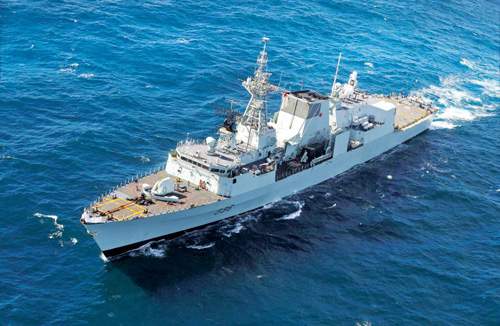The Federal Government’s National Shipbuilding Procurement Strategy (NSPS) is far from perfect. As previous NATO Council of Canada articles have addressed, the NPSP is problematic in several different respects. For instance, it fails to address the Royal Canadian Navy’s need for heavy sealift and amphibious capabilities. Furthermore, questions have been raised about whether the acquisition of only two Queenston-class replenishment ships will be sufficient for the RCN’s future requirements.
However, the National Shipbuilding Procurement Strategy could also provide some positive insights, particularly the shipbuilder bidding process. After years of work on the project, the Federal Government announced in October 2011 that “Irving Shipbuilding in Halifax will receive a $25-billion naval vessel building contract, while Seaspan Marine in Vancouver will receive an $8-billion contract for building coast guard and other non-navy ships.” Unlike other major procurement projects in recent years, the news met with a fairly positive general reaction with some political critics choosing to withhold judgement until more details were available. The atmosphere stood in complete contrast to the much more negative, controversial tone surrounding other major procurements projects, such as the acquisition of Lockheed Martin F-35 Lightening II aircraft. The F-35 procurement debate is a complex topic, but one point seems very apparent. From the very beginning, the Federal Government faced criticism for not holding a competitive selection process. Its failure to adequately explain the process ended up hurting the government’s public image.
The objectivity of politically-charged bidding processes is sometimes questioned in large procurement projects. However, the involvement of an independent monitor in the NSPS initiative gave outside observers more confidence that the Federal Government team (with representatives from a variety of Departments) acted independently. At the time, some commentators even argued that the NSPS could potentially set a new standard for future defence procurement.
On the surface, it is easy to see how the National Shipbuilding Procurement Strategy could have become a highly controversial program. Soon after the Federal Government’s previous decision to build the ships in Canada, critics had raised concerns about cost overruns and delays. Specifically, some journalists questioned whether the individual unit cost could have been dramatically lowered by giving the contract to a major international shipyard (already at the peak of production), such as Germany’s ThyssenKrupp Marine Systems. Yet, despite the higher costs, the NSPS is an interesting example of the Federal Government’s effort to balance differing economic, political and strategic interests. Having a bidding process generally perceived as fair helped diminish potential criticism about the NSPS being used for domestic political gain. Whenever the Federal Government provides economic stimulation to a certain sector the political blowback can be severe, particularly when the investment involves billions of dollars over the next several decades.
The ultimate outcome of the National Shipbuilding Procurement Strategy is far from clear. Past procurement projects serve as an important reminder about drawing premature conclusions. It is far too early to judge the entire project as a general success or failure. But the initial stages do offer some room for hope. If nothing else, the NPSP could provide a valuable precedent for the Federal Government when it comes to future procurement bidding processes. The NSPS also serves as example that perceptions of objectivity truly do matter. Involving independent monitors from the very beginning is an important way to not only build bi-partisan support, but public confidence as well.




